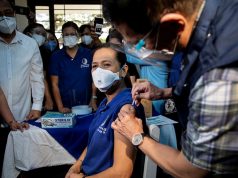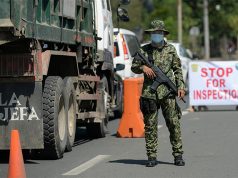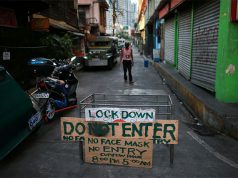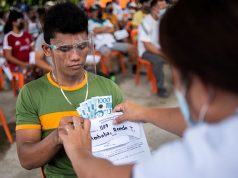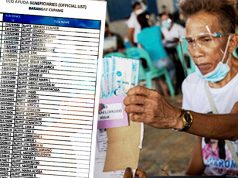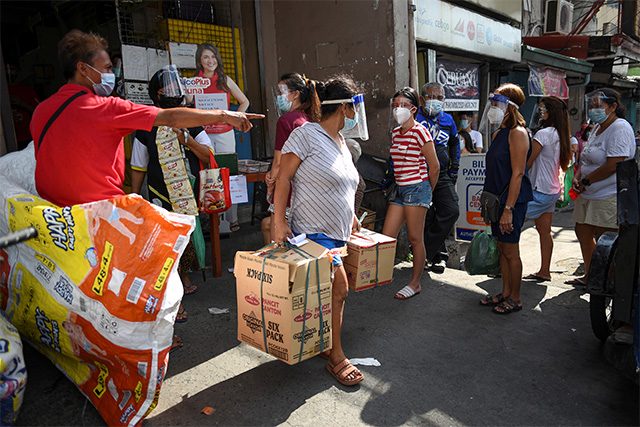
The national government will only provide P1,000 worth of aid per individual and no more than P4,000 per family affected by the reimposition of enhanced community quarantine.
Some Filipinos questioned the meager amount that is expected to last a week and the purpose of it being in-kind.
The Department of Budget and Management proposed this appropriation to President Rodrigo Duterte during the pre-recorded meeting on Monday, March 29.
Duterte also approved this proposal in the same event.
Budget Secretary Wendel Avisado stated that the Supplemental Amelioration Program will cover 80% of the population of the areas placed under the enhanced community quarantine.
The breakdown of the projected 80% or 22.9 beneficiaries is:
- National Capital Region—11.2 million
- Bulacan—3 million
- Cavite—3.4 million
- Laguna—2.7 million
- Rizal—2.6 million
Avisado told Duterte that the P23 billion provided by Bayanihan 2, the country’s second stimulus package, will be the funding source of this renewed financial support.
The distribution is up to the local government units, the budget head said, citing this aid to be “in-kind.”
“So wala po tayong cash po dito po. We will leave it to the local government units dahil sila naman talaga ang first line of pinupuntahan ng mga tao na sila po ang mag-allocate nito base po doon sa approval ninyo na at least 1,000 pesos per person,” Avisado said.
The DBM chief clarified that ECQ beneficiaries can be given “in cash or in kind” by local government units once funds are downloaded to them as long as it does not breach P1,000 per person.
“The approved budget is 1K/pax per memo received from OES (Office of the Executive Secretary). So the LGUs can decide on whether to give it in cash or in kind,” Avisado issued the clarification to Philstar.com.
The re-implementation of ECQ will last until April 4 if not extended. It falls on the same period as the observance of Holy Week.
The allocated money and the manner of distribution faced scrutiny on social media.
Robert Anthony Siy, the chief transport planner of Pasig City, wondered how the “in kind” donations were obtained.
“Well, the next round of ayuda will be P23 billion ‘in kind’ probably procured without bidding,” Siy said.
A Facebook user likewise commented that LGUs have more leeway to deceive recipients through relief goods.
“In kind means more ‘creativity’ for the corrupt to make money while cash does not have enough leeway to make money except ghost recipients like the ghost payroll,” the user wrote.
Some Filipinos also expressed concern over the logistics and other resources needed to arrange the distribution of relief items unlike if it was provided in cash.
“In kind distribution will be a logistical nightmare, and more prone to corruption,” one user commented.
Most comments addressed how such amount can last for a week, citing daily expenses and number of individuals per family.
“Talaga P1,000? Sa lahat kaya o sa iilan lng? Parang iyong nakaraang lockdown hindi naman umabot ng P1,000 ang lahat ng natanggap namin na goods. Goods lang dahil wala naman kaming cash na natanggap,” one user said.
Similarly, one Reddit user shared a graphic that seemed to be an open letter to Duterte, wherein the importance of the financial aid and vaccine were emphasized.
Louder from Philippines
During the previous lockdown, presidential spokesperson Harry Roque said that the first tranche of the government’s amelioration program reached more than 18 million families.
However, families living in areas under the succeeding phases of quarantine will no longer received the second tranche.
This policy likewise received heavy backlash on social media, wherein users pointed out that thousands more Filipinos never received any financial provisions in the first place.




